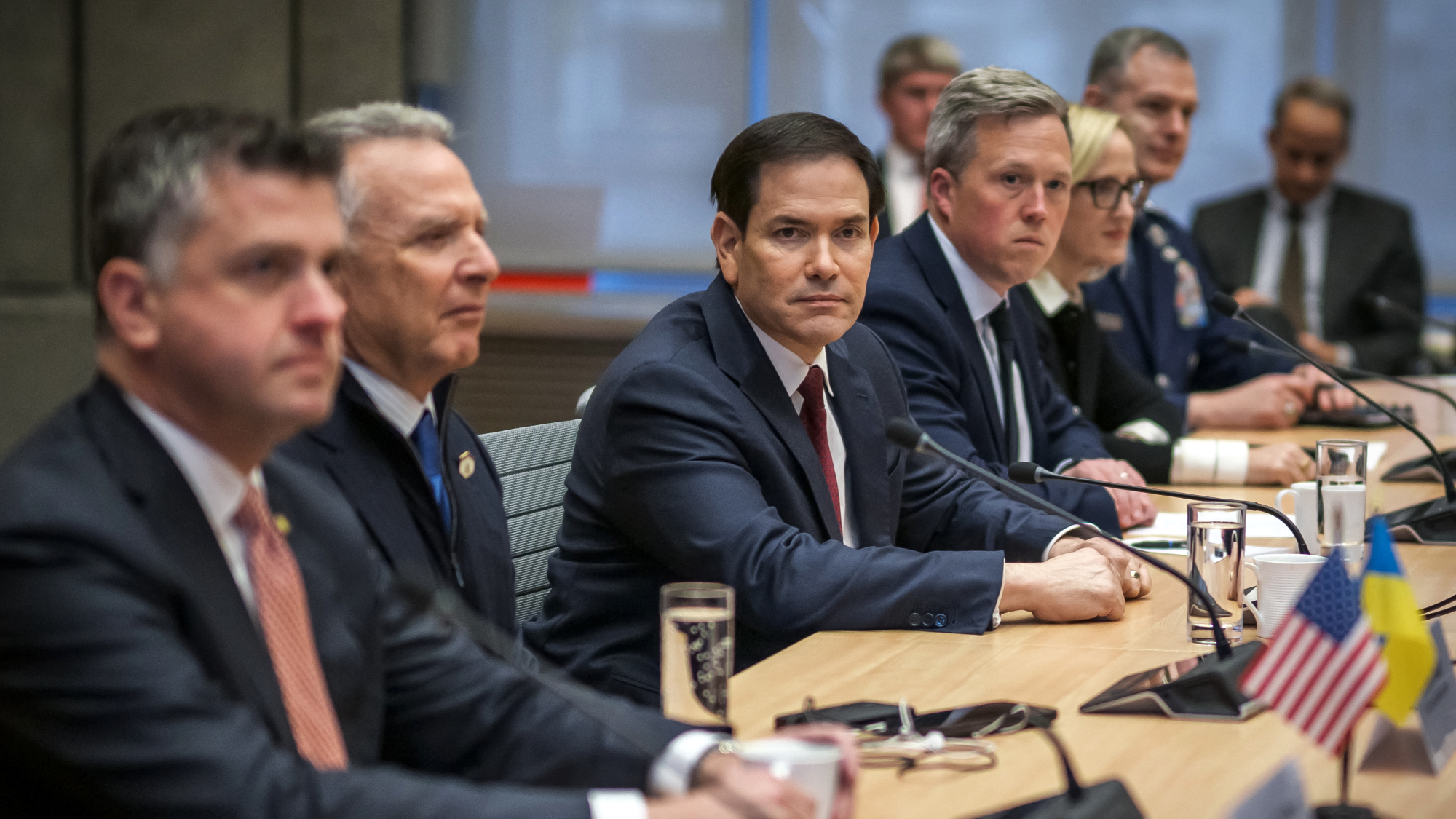US, Kyiv report progress on shifting Ukraine peace plan
The deal ‘must fully uphold Ukraine’s sovereignty,’ the countries said


A free daily email with the biggest news stories of the day – and the best features from TheWeek.com
You are now subscribed
Your newsletter sign-up was successful
What happened
The U.S. and Ukraine said Sunday that a round of “highly productive” negotiations in Geneva had resulted in an “updated and refined peace framework,” following days of confusion and pushback against a Russia-friendly 28-point plan the Trump administration presented to Kyiv last week. Secretary of State Marco Rubio, who led the U.S. delegation, said the two sides made “substantial progress” and he felt “very optimistic that we can get something done.”
Who said what
The U.S. and Kyiv agreed in a joint statement that a final peace deal “must fully uphold Ukraine’s sovereignty and deliver a sustainable and just peace.” But neither side explained how the revised plan differed from the original, which required Ukraine to cede unconquered land, cap its army and arsenal, and other measures long rejected by Kyiv as tantamount to capitulation.
President Donald Trump told reporters on Saturday that the initial 28-point proposal was “not my final offer,” but if Ukrainian President Volodymyr Zelenskyy did not accept it by a Thursday deadline, “then he can continue to fight his little heart out.” Trump said on social media Sunday morning that “UKRAINE ‘LEADERSHIP’ HAS EXPRESSED ZERO GRATITUDE FOR OUR EFFORTS.” Rubio also downplayed Trump’s Thanksgiving deadline.
The Week
Escape your echo chamber. Get the facts behind the news, plus analysis from multiple perspectives.

Sign up for The Week's Free Newsletters
From our morning news briefing to a weekly Good News Newsletter, get the best of The Week delivered directly to your inbox.
From our morning news briefing to a weekly Good News Newsletter, get the best of The Week delivered directly to your inbox.
Adding to the uncertainty, “there seemed to be continued confusion about the original proposal,” The New York Times said. A bipartisan group of senators said Rubio had told them Saturday that it was a Kremlin “wish list” that the U.S. was just passing along. But the State Department said that was “blatantly false,” and Rubio wrote on social media that it was “authored by the U.S.” It was “absolute chaos,” a U.S. official told The Washington Post, “because even different parts of the White House don’t know what’s going on. It’s embarrassing.”
What next?
The U.S.-Ukrainian statement said the two sides would “continue intensive work on joint proposals in the coming days.” When that work is done, “obviously the Russians get a vote here,” Rubio said, before flying back to Washington, D.C., on Sunday. Kremlin officials “have been rejecting” the original 28-point plan, the Institute for the Study of War said, suggesting “Russia is unlikely to accept any proposed peace plan that falls short of Ukrainian capitulation.”
A free daily email with the biggest news stories of the day – and the best features from TheWeek.com
Rafi Schwartz has worked as a politics writer at The Week since 2022, where he covers elections, Congress and the White House. He was previously a contributing writer with Mic focusing largely on politics, a senior writer with Splinter News, a staff writer for Fusion's news lab, and the managing editor of Heeb Magazine, a Jewish life and culture publication. Rafi's work has appeared in Rolling Stone, GOOD and The Forward, among others.
-
 The environmental cost of GLP-1s
The environmental cost of GLP-1sThe explainer Producing the drugs is a dirty process
-
 Greenland’s capital becomes ground zero for the country’s diplomatic straits
Greenland’s capital becomes ground zero for the country’s diplomatic straitsIN THE SPOTLIGHT A flurry of new consular activity in Nuuk shows how important Greenland has become to Europeans’ anxiety about American imperialism
-
 ‘This is something that happens all too often’
‘This is something that happens all too often’Instant Opinion Opinion, comment and editorials of the day
-
 ‘The mark’s significance is psychological, if that’
‘The mark’s significance is psychological, if that’Instant Opinion Opinion, comment and editorials of the day
-
 ‘The West needs people’
‘The West needs people’Instant Opinion Opinion, comment and editorials of the day
-
 Trump links funding to name on Penn Station
Trump links funding to name on Penn StationSpeed Read Trump “can restart the funding with a snap of his fingers,” a Schumer insider said
-
 Trump reclassifies 50,000 federal jobs to ease firings
Trump reclassifies 50,000 federal jobs to ease firingsSpeed Read The rule strips longstanding job protections from federal workers
-
 ‘The censorious effect is the same, even if deployed covertly’
‘The censorious effect is the same, even if deployed covertly’Instant Opinion Opinion, comment and editorials of the day
-
 Supreme Court upholds California gerrymander
Supreme Court upholds California gerrymanderSpeed Read The emergency docket order had no dissents from the court
-
 700 ICE agents exit Twin Cities amid legal chaos
700 ICE agents exit Twin Cities amid legal chaosSpeed Read More than 2,000 agents remain in the region
-
 Vietnam’s ‘balancing act’ with the US, China and Europe
Vietnam’s ‘balancing act’ with the US, China and EuropeIn the Spotlight Despite decades of ‘steadily improving relations’, Hanoi is still ‘deeply suspicious’ of the US as it tries to ‘diversify’ its options
